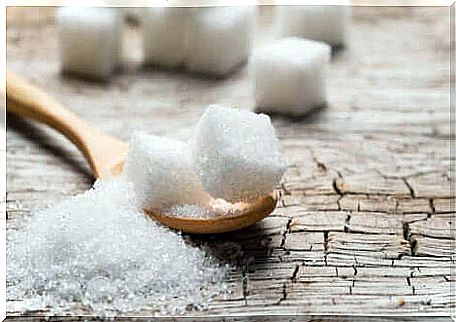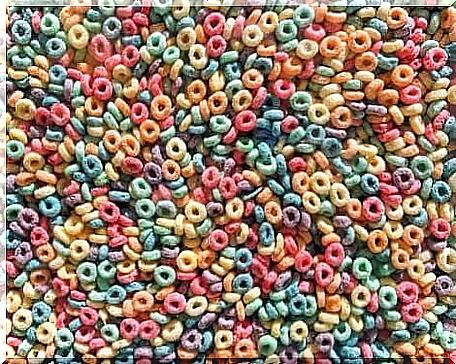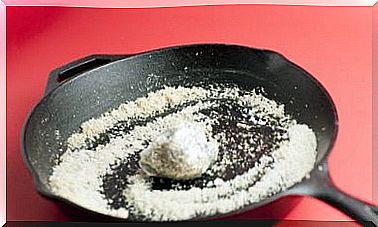Is Sugar Consumption Really Necessary?
Simple sugar has a negative impact on the body due to increased pancreatic stress caused by the need for high insulin production.

With the increase in ketogenic diets, many people are wondering if consuming sugar is really necessary to keep the body functioning. The truth is, experts have expressed varying opinions in recent years. Therefore, we tell you more about it.
Before we begin, it is important to clarify that the current population tends to consume too much sugar. This is mainly due to the increase in industrial and processed products. The latter often have a high content of simple sugars and trans fats in order to improve the organoleptic characteristics of the final product.
What is sugar?

When we talk about sugar, we are referring to a type of simple carbohydrate that is basically made up of units of glucose joined together.
Although these units can form more complex structures, they generally have a rapid rate of absorption from the intestine. This is why they increase the amount of insulin produced. Which turned out to be harmful in the medium term. Sugars can group together the following nutrients.
Monosaccharides
These are sugars categorized as simple. Usually, they are made up of a series of glucose molecules joined together. Their regular ingestion is linked to a deterioration of the state of health. Because they affect metabolic health and present a risk of developing overweight. This is what a study published in Frontiers in Bioscience highlights .
Disaccharides
Disaccharides are formed by the union of monosaccharides through an o-glycosidic bond. The latter have a slightly slower absorption rate than the previous ones, even though they are considered simple sugars. Their consumption should therefore be limited as much as possible.
Polysaccharides
Polysaccharides are carbohydrates composed primarily of glucose, although they form a network of bonds that greatly increase their molecular weight. For this reason, they are already considered complex sugars.
Their rate of absorption is slower. Therefore, the effects on the body vary. These components are able to generate minor spikes in blood glucose.
What is the process of metabolizing sugar in the body?
Carbohydrates reach the small intestine where they are broken down into simple units by enzymes and then absorbed. Then, they pass into the blood, which raises blood sugar and stimulates the secretion of insulin. The anabolic hormone that allows the nutrient to be transported to cells or the liver.

During physical activity, the sugar reaches the muscle tissue where it will be transformed into energy ready to be used. But if the person is at rest, it is stored as liver or muscle glycogen.
However, it should be noted that these deposits are limited. As soon as it is saturated, the sugar begins to turn into fat in the liver for its subsequent accumulation in adipose tissue.
In addition, it should be noted that this growth in lipid reserves has proven to be harmful to health, especially when it exceeds certain levels. From there, inflammatory processes are promoted, in many cases linked to the development of complex pathologies.
Sugar consumption: what is the function of glucose in the body?
As we have commented, glucose is useful primarily for the genesis of energy. It is the preferred fuel for the anaerobic pathways of metabolism, as well as the aerobic pathways.
However, the latter also accept fatty acids, and even glucose not derived from sugar. It is formed through physiological processes involving fatty acids and proteins.
It should also be noted that glucose works as a fuel for our brain. However, contrary to what was believed until recently, there are other components that can perform this function perfectly. One example is the ketogenic bodies generated during ketosis.
Is the consumption of sugar really necessary?
In fact, everything seems to indicate that sugar is not necessary in the diet of sedentary people. Even in the case of athletes, its consumption is under debate. The body can actually function perfectly well in situations where the carbohydrate intake is low. It seems that this type of diet is beneficial for the body.

However, a diet low in sugar, with the presence of complex carbohydrates is quite possible. This implies a significant decrease in the intake of sweets and processed products, as well as an increase in fresh foods. Such a situation corresponds to the happy medium and is beneficial for the functioning of the organism.
Sugar consumption: a poorly recommended nutrient
According to data, sugar is a nutrient of little value in the diet. Indeed, most experts defend the need to reduce its consumption in sedentary people. Even among athletes, the possibility of avoiding its ingestion is under debate. This could increase metabolic flexibility and performance in the medium term.
What is clear is that lowering sugar generates a positive impact on health. But that doesn’t mean you should cut out all types of carbohydrates.
Of course not. Those with a low glycemic index, in other words which are complex, can be consumed. We find them mainly in tubers and legumes.









